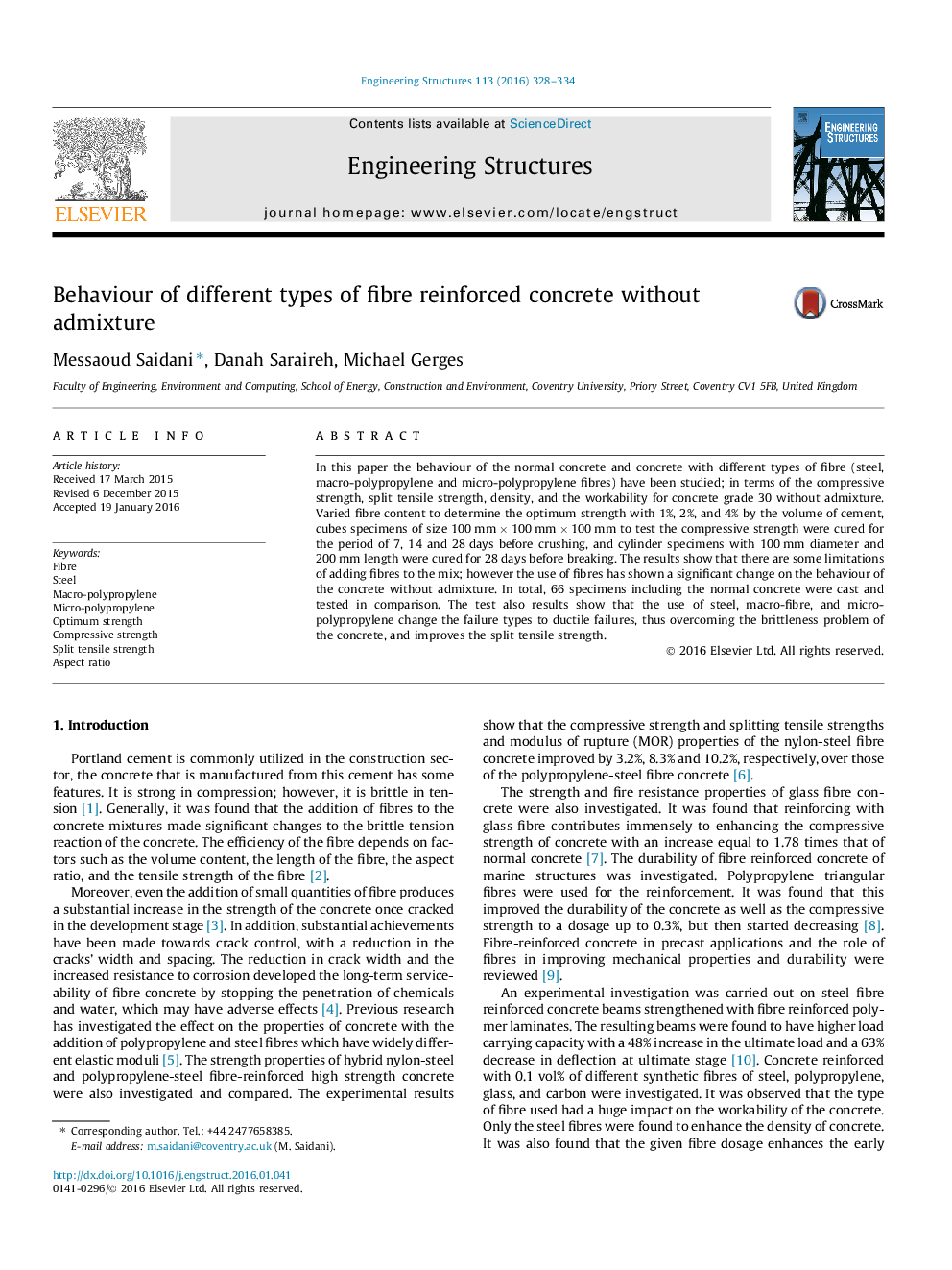| Article ID | Journal | Published Year | Pages | File Type |
|---|---|---|---|---|
| 6740156 | Engineering Structures | 2016 | 7 Pages |
Abstract
In this paper the behaviour of the normal concrete and concrete with different types of fibre (steel, macro-polypropylene and micro-polypropylene fibres) have been studied; in terms of the compressive strength, split tensile strength, density, and the workability for concrete grade 30 without admixture. Varied fibre content to determine the optimum strength with 1%, 2%, and 4% by the volume of cement, cubes specimens of size 100 mm Ã 100 mm Ã 100 mm to test the compressive strength were cured for the period of 7, 14 and 28 days before crushing, and cylinder specimens with 100 mm diameter and 200 mm length were cured for 28 days before breaking. The results show that there are some limitations of adding fibres to the mix; however the use of fibres has shown a significant change on the behaviour of the concrete without admixture. In total, 66 specimens including the normal concrete were cast and tested in comparison. The test also results show that the use of steel, macro-fibre, and micro-polypropylene change the failure types to ductile failures, thus overcoming the brittleness problem of the concrete, and improves the split tensile strength.
Related Topics
Physical Sciences and Engineering
Earth and Planetary Sciences
Geotechnical Engineering and Engineering Geology
Authors
Messaoud Saidani, Danah Saraireh, Michael Gerges,
